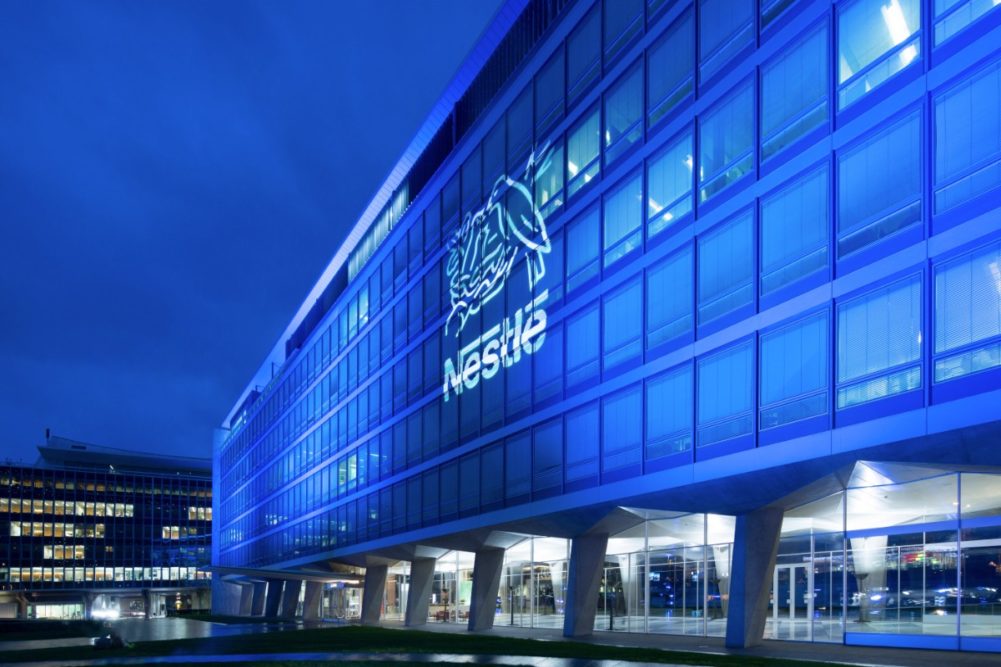VEVEY, SWITZERLAND — Nestle SA remains on the lookout for potential mergers and acquisitions, even as the company and the world deals with uncertainty caused by the coronavirus (COVID-19) pandemic.
“We’re working on a number of interesting leads,” said Ulf Mark Schneider, chief executive officer, in an April 24 earnings call to discuss first-quarter results. “If there are some now that may be coming up in addition because of the economic crisis, I think it's too early to tell that because remember, this is only month one or month two, depending on where the crisis hit, for most regions, and you would probably see M&A opportunities that relate to financial difficulties only come up after several months or quarters. So it's a little early to speculate on that.”
He added many food and beverage manufacturers are doing well financially because of increased consumer demand.
During the COVID-19 pandemic, Vevey-based Nestle is helping its out-of-home and foodservice customers through its “Always open for you” initiative valued at about 500 million Swiss francs ($512 million). The initiative includes extending payment terms, suspending rental fees for coffee machines and offering free products.
Nestle SA in the quarter reported sales of 20.8 billion Swiss francs ($21.3 billion), a decrease of 6% from 22.2 billion Swiss francs in the previous year’s first quarter. Acquisitions net of divestitures reduced sales by 4.7%, largely due to Nestle divesting its US ice cream business along with Nestle Skin Health. Foreign exchange reduced sales by 6%.
Organic sales growth was 4.3%.
“It is important, however, not to get carried away by the strong organic growth of 4.3% for the first quarter,” Schneider said. “Behind this global and consolidated number, you see significant and unprecedented ups and downs by category, channel and geography. This highly volatile situation is expected to stay with us for a while. We will of course try and give you maximum transparency on how our business develops, but I'm also asking for your understanding that we will not have a lot to offer on this call when it comes to forecasting the next quarters or years.”
Nestle maintained its original full-year 2020 guidance, which includes continued improvement in organic sales growth and in underlying trading operating profit margin.
In the first quarter, Purina PetCare provided the most sales growth. Prepared dishes and cooking aids grew at a high single-digit rate. Coffee had good momentum behind the demand for Starbucks products, Nespresso and Nescafé.
“By channel, all markets saw a significant shift from out-of-home to in-home consumption,” said Francois-Xavier Roger, executive vice president and chief financial officer. “Businesses which were most impacted include Nestle Professional, Water in the out-of-home channel as well as Nespresso boutiques.”
Sales of both value products and premium products held up well in the quarter, Schneider said.
“And that is something that in hindsight also is very much in sync (with) the experience we had from previous crises, including the world financial crisis, where usually it's the two extremes, the value side and the premium side, that do hold up quite well in a downturn, and at least now, for the early innings of this new situation, that seems to apply as well,” he said.
In Zone Americas, sales of 8.3 billion Swiss francs ($8.6 billion) were down 2.7% from 8.6 billion Swiss francs in the previous year’s first quarter. Organic sales growth was 7%.
In North America, Purina PetCare contributed the most sales growth. Beverages, including Starbucks products, Nescafé and Coffee mate, grew sales at a high single-digit rate. Frozen food posted high single-digit growth, and Gerber baby food reported mid-single-digit growth. Nestle completed the divestment of its US ice cream business for $4 billion to Froneri on Jan. 31.
Within Zone Asia, Oceania and sub-Saharan Africa, first-quarter sales of 5 billion Swiss francs were down 10%. Sales in China declined by a double-digit percentage due to movement restrictions, limited consumer stockpiling and declines in out-of-home channels, Roger said. China’s business, while coming back, is not yet at the level it was before COVID-19 hit, he said.
Nestle is exploring strategic options, including a potential sale, for its Yinlu peanut milk and canned rice porridge business in China. The business had sales of about 700 million Swiss francs in 2019. Nestle will retain and develop its existing Nescafé ready-to-drink coffee business.
Within Zone Europe, Middle East and North Africa, first-quarter sales increased 0.4% to 5.3 billion Swiss francs even though foreign exchange negatively impacted sales by 6%. Acquisitions net of divestitures reduced sales by 0.5%.
Within Other Businesses, which includes Nespresso and Nestle Health Science, first-quarter sales fell 22% to 2.2 billion Swiss francs, mainly because Nestle divested the Nestle Skin Health business.


